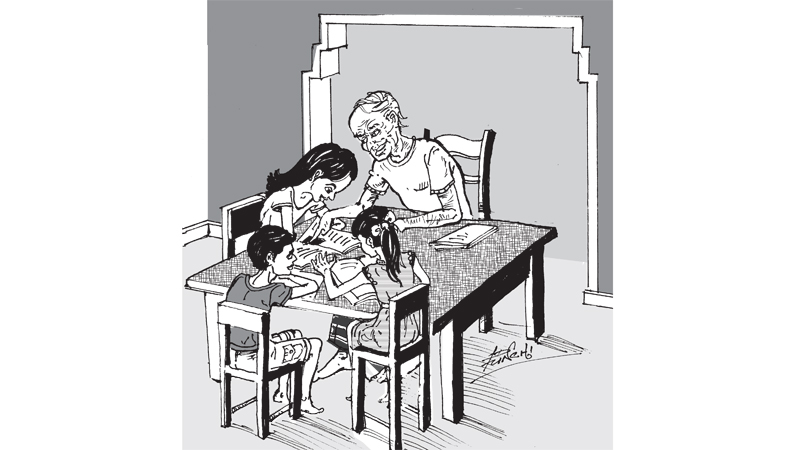 It is popularly believed that old age inevitably brings about the mind’s decline. Recent research by neuroscientists and psychologists has produced surprising results. According to them, the mind’s decline in old age is a myth. They say so for many valid reasons.
It is popularly believed that old age inevitably brings about the mind’s decline. Recent research by neuroscientists and psychologists has produced surprising results. According to them, the mind’s decline in old age is a myth. They say so for many valid reasons.
Tests have proved that elderly people do not make more mistakes than younger people when it comes to remembering facts or learning a poem by rote. Researchers have found that mental performance differs from person to person in different ages. Therefore, old age in itself is not a valid cause of poor memory.
Harvard University psychologist Douglas Powell tested 583 people ranging from 25 to 90 years of age to determine their reasoning powers, memory skills, visual and spatial abilities. He found that a quarter to a third of octogenarians performed as well as their younger counterparts. The mental abilities of some of the octogenarians were praiseworthy. They did not show any mental decline in their daily activities.
Powell’s experiments confirm that most people retain strong mental powers even in their 70s and 80s. Some of them still retain their mental powers even in their 90s. Scientists, however, say that genetic and environmental factors play a significant part in strong mental skills. According to Director of Gerontology Center at Pennsylvania State University K. Warner Schaie, education matters a lot in maintaining higher mental skills. Edwin Ariyadasa, a senior journalist and media consultant, had amazing mental skills even in his 90s.
Millions of neurons
The human brain has millions of neurons. Some people believe that the neurons die off with age. When this happens, people lose their memories leading to so many other problems. Neurologist Alan Peters of Boston University says that although brain cells shrink in old age, they do not die off. Neurological connections and information processing can be affected by old age. However, the actual information that fills up the brain over a lifetime does not deteriorate. As a result, most old people have first-rate intelligence, but they may be a little slow in cognitive abilities.
It is strange but true that some people lose their memory quite early in their old age. However, what really happens is that their spatial relationships begin to malfunction. As a result, some elderly people may find it difficult to read maps or find their cars in a car-park. Sometimes, such difficulties may occur even in your 40s. This is followed by the decline of verbal memory. When it takes place, they will not be able to recall the meaning of difficult words.
However, if you regularly use a dictionary and learn the meaning of difficult words, your memory will remain steady. Another method to preserve your verbal memory is to teach the language to others. If you use words regularly, you will never forget them.
Even if you grow very old, you will not lose your procedural memory. If you are physically healthy, you will be able to ride a bicycle in your old age. Similarly, you can use a computer if you are not visually impaired. I have seen very old people play the piano or engage in certain sports activities.
Common memory losses
Most of us have experienced common memory losses from time to time. The brain produces less acetylcholine, a neurotransmitter that directly affects memory. Today, certain drugs mimic the missing chemical. Scientists are experimenting with many other memory boosters at present. Therefore, there is no need to panic that you are going to lose your memory in your old age.
If you wish to have a superb memory in your old age, expose your brain to novel experiences. It is the only way to keep the mind agile. There is no need to put the brain through mental workouts that are not enjoyable. Even reading a book should be a pleasurable activity. What is more, emotional well-being will help you to possess a good memory. Those who suffer from anxiety tend to slide downhill more than others who find life satisfying.
A Latin proverb – Menssana in corporesano – says sound mind is in a sound body. Illness does not devastate mental agility. There are, of course, certain diseases that are linked to mental decline. Some of them are heart disease, diabetes and high blood pressure. Overeating, inactivity and stress can also lead to mental decay.
Rejuvenation
Although physical exercises are necessary to maintain good health, some elderly people are unable to take part in sports. For them, walking can be a moderate exercise to boost health. Even an ageing brain has an astonishing ability to rejuvenate itself. The brains of some elderly people sometimes rewire themselves to compensate for losses. We revere our elders in our culture because they do not show signs of mental decay.
Research shows that elderly people adjust to their slow-moving brains by doing their activities more efficiently than younger counterparts.
In most newspaper organisations, elderly people work as editors and proofreaders. However, we need more research on the ageing mind. Old age should not be defined as a period of mental decay.
In developed countries, neuroscientists and psychologists are seeking new ways to treat cognitive disorders. Brain power clinics have come up in the United States to evaluate, diagnose and counsel elderly people. The aim is to optimise their performance on the job and in social interactions.









